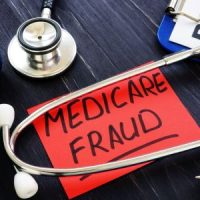When Are “Co-Conspirator” Statements Admissible in a Florida Criminal Trial?

In federal criminal trials, parties typically cannot introduce hearsay as evidence. A hearsay statement is one that is made out-of-court and offered to prove the truth of the matter asserted. “Phil told me that he saw Pam robbing the store” is an example of inadmissible hearsay. Phil could testify as to what he saw, but a third party could not testify as to what Phil saw.
There are, of course, a number of exceptions to the hearsay rule. Under Federal Rule of Evidence 801, a statement offered against an opposing party is admissible when it was made by them or their representative. In other words, the prosecution can offer hearsay statements made by the defendant or someone acting on the defendant’s behalf. This includes the defendant’s “co-conspirator during and in furtherance of the conspiracy.”
Appeals Court Rules for Prosecutors on Key Issue in Anti-Kickback Case
The United States 11th Circuit Court of Appeals, which has federal appellate jurisdiction in Florida, recently clarified that the use of “conspiracy” in Rule 801 does not necessarily mean an illegal or criminal conspiracy. The appeals court addressed this issue in connection with an ongoing criminal case, United States v. Holland, where the government appealed a trial court’s decision to exclude certain co-conspirator testimony under Rule 801.
The underlying case is a prosecution for alleged violations of the federal Anti-Kickback Statute. This is a federal law that prohibits the referral of patients covered by a federal healthcare program such as Medicare or Medicaid. In this case, the government charged three defendants. One of the defendants operated a group of healthcare clinics. The other two defendants were hospital executives. The government alleges that the hospital executives paid the clinic operator and his wife to refer pregnant women covered by Medicaid and Medicare to their hospital. The clinic operator’s life previously pleaded guilty to violating the Anti-Kickback Statute, while the three defendants elected to defend themselves at trial.
As relevant here, the government said it planned to call several “unindicted co-conspirators” to testify as to out-of-court statements made by the defendants. The trial court held a pre-trial hearing and determined the government could not prove the existence of an illegal conspiracy, and therefore the statements were inadmissible. The government appealed that ruling.
The 11th Circuit agreed with the government and held the trial judge abused their discretion. The reason was simple: Rule 801 does not require proof that the underlying conspiracy was illegal. The use of the word “conspiracy” in the rule referred to any “joint venture,” legal or illegal. Therefore, all the prosecution needed to show was that the statements offered against the defendant were made during the furtherance of a “joint venture” of some sort.
Contact an Orlando Medicaid/Medicare Fraud Lawyer Today
Federal prosecutors take alleged abuses of government healthcare programs seriously. So if you are charged with defrauding the government, it is imperative that you seek legal representation from an experienced Orlando Medicaid/Medicare fraud attorney. Call the Joshi Law Firm, PA, today at 844-GO-JOSHI or contact us online to schedule a free initial consultation.
Source:
media.ca11.uscourts.gov/opinions/pub/files/202214219.op2.pdf

